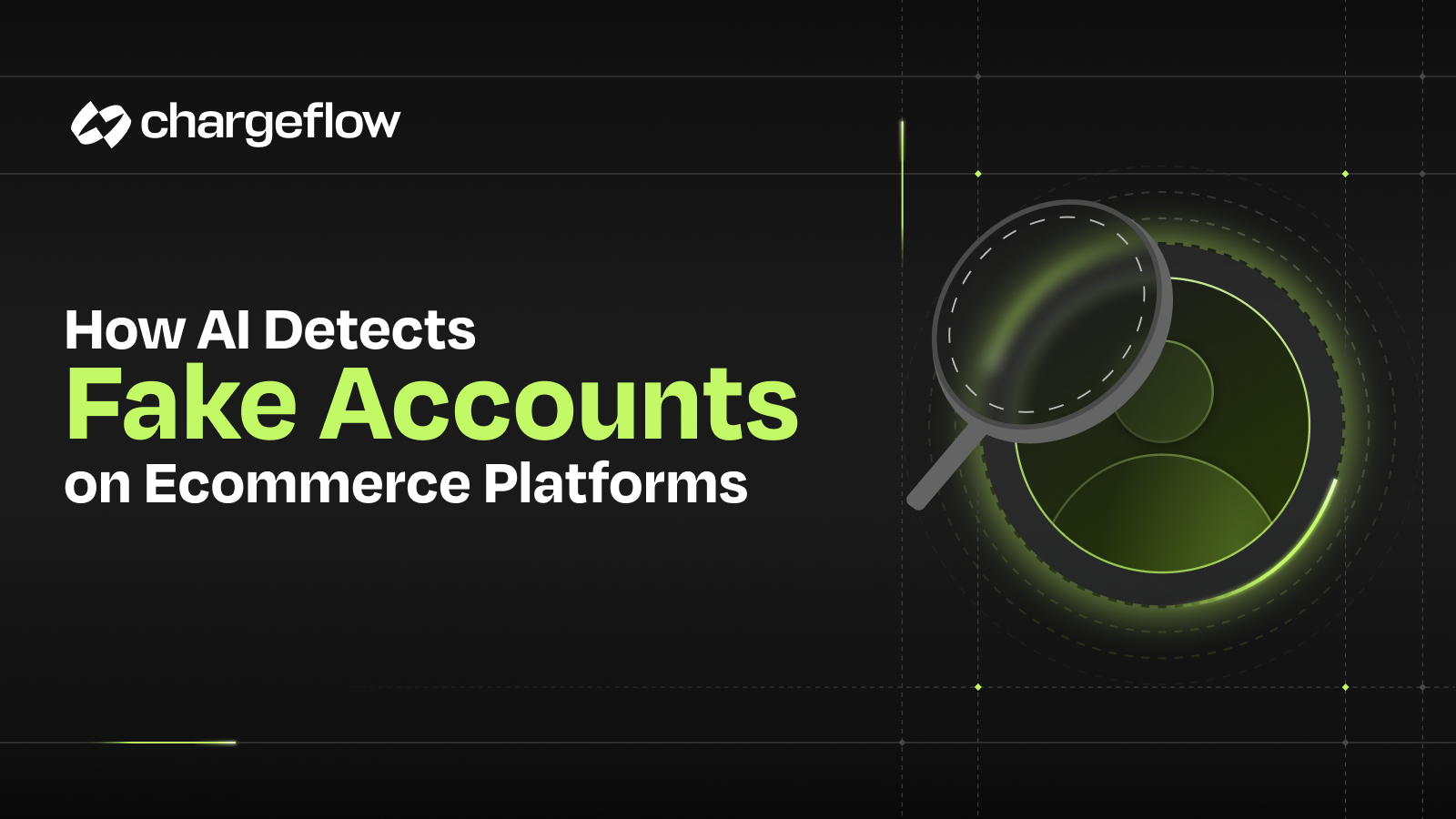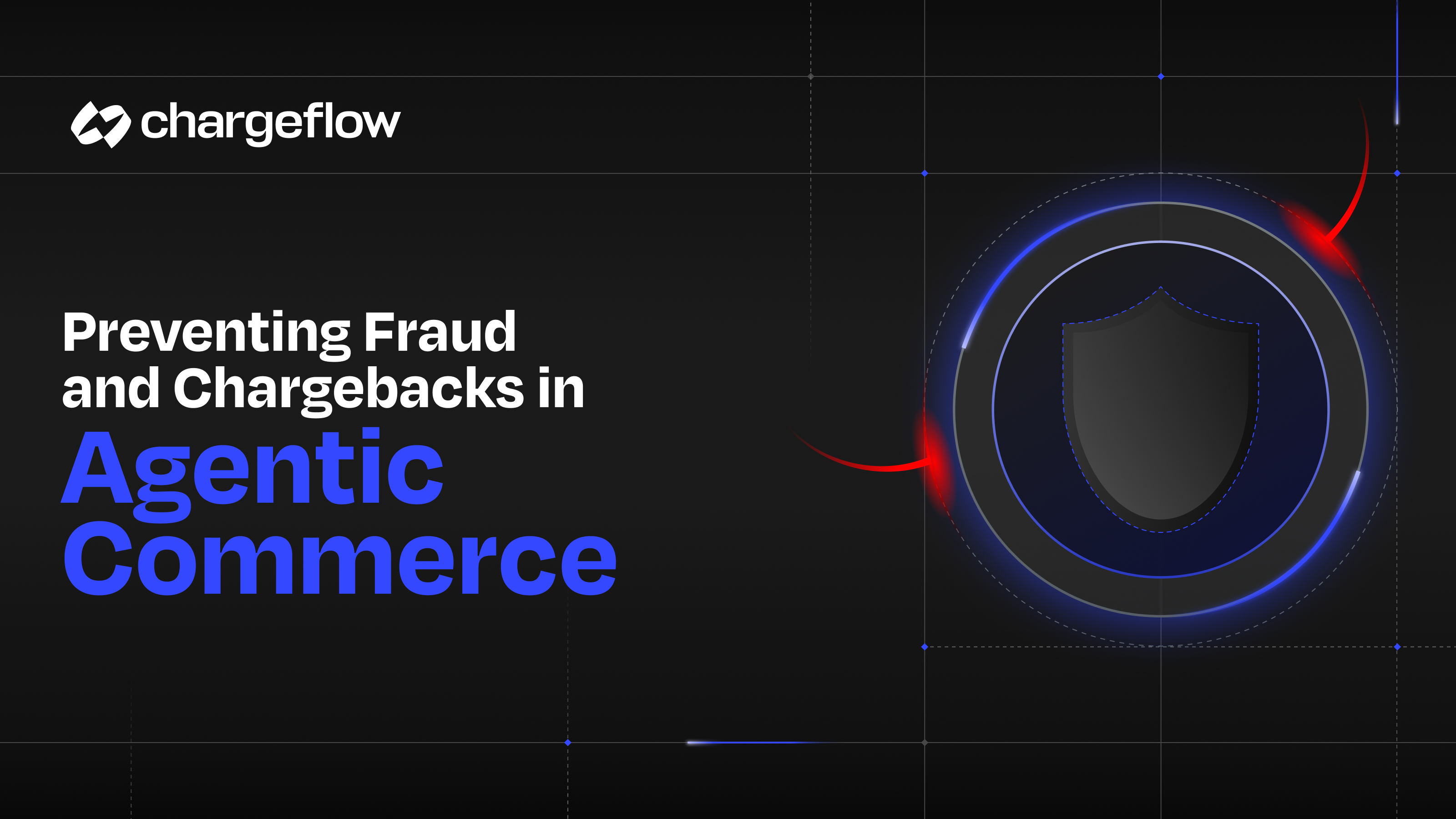What Is a Chargeback in Banking? A Must-Have Knowledge for Merchants

Chargebacks?
No longer your problem.
Recover 4x more chargebacks and prevent up to 90% of incoming ones, powered by AI and a global network of 15,000 merchants.
Get familiar with the concept of chargebacks in banking with this essential guide for merchants. Learn what they are, how to avoid them, and more.
The banking system is full of technical terms and processes that can be confusing to understand. One of those terms is a chargeback, which many merchants need to know the ins and outs of before doing business with customers.
A chargeback is an instance where a customer disputes or reverses a credit card payment due to various reasons, meaning the merchant loses out on that purchase and needs to refund the customer for it.
Understanding how chargebacks work and taking preventative steps are key components in preparing yourself for any potential challenges when it comes to money transactions within your business structure.
In this blog post, we will explain what a chargeback actually is and provide useful advice on how merchants can reduce these instances as much as possible.
Definition of Bank Chargeback
A bank chargeback is a dispute resolution process that allows a cardholder to request a refund from their bank for a transaction that they do not recognize, did not authorize, or did not receive the goods or services for which they were charged. When a cardholder initiates a chargeback, the bank refunds the cardholder and debits the merchant's account for the disputed amount, along with a chargeback fee.
The bank chargeback process is governed by card network rules such as Visa, Mastercard, American Express, and Discover, as well as regulations such as the Fair Credit Billing Act (FCBA) and the Electronic Fund Transfer Act (EFTA). These rules and regulations establish timelines, documentation requirements, and dispute resolution procedures that merchants must follow to defend against chargebacks.
Merchants have the right to dispute chargebacks and provide evidence that the transaction was valid, authorized, and fulfilled. They can submit evidence such as proof of delivery, transaction records, and communication with the customer to the bank. The bank reviews the evidence and decides whether to uphold or reverse the chargeback.
Reasons for Bank Chargebacks
Bank chargebacks can be initiated by cardholders for various reasons, including:
1. Fraudulent Activities
One of the most common reasons for bank chargebacks is fraud. Fraudulent transactions can occur due to stolen card information, identity theft, or unauthorized use of the card. When a cardholder notices an unauthorized charge on their account, they can dispute the transaction and request a chargeback.
Merchants can prevent fraudulent chargebacks by implementing security measures such as PCI compliance, two-factor authentication, and fraud detection software. It is also crucial for merchants to validate the identity and address of customers and to maintain records of transactions and customer communication.
2. Disputes and Errors
Another reason for bank chargebacks is disputes or errors in transactions. These disputes can arise due to misunderstandings, billing errors, or delivery issues. For example, a customer may dispute a charge if they did not receive the product or service as advertised, or if the product was defective or damaged.
To prevent disputes and errors, merchants should ensure that their products and services are accurately described and delivered in a timely manner. Merchants should also maintain open communication with customers and promptly address any concerns or complaints.
3. Technical Issues
Technical issues can also lead to bank chargebacks. These issues can occur due to system errors, processing delays, or connectivity issues. Technical issues can result in duplicate charges, overcharges, or undercharges, which can lead to disputes and chargebacks.
Merchants can prevent technical issues by regularly testing their systems and processes, monitoring transactions for errors, and promptly resolving any technical issues that may arise.
Impact of Bank Chargebacks on Merchants
The impact of bank chargebacks on merchants is multifaceted and can be incredibly detrimental to businesses when not managed effectively. One of the most significant consequences of chargebacks is the financial loss incurred as a result of not only the returned funds but also the additional fees associated with processing the chargeback.
It can be particularly burdensome for small businesses with limited financial resources. Among the other adverse effects, a damaged reputation can emerge as customers may perceive merchants with high chargeback rates as untrustworthy, which can ultimately lead to a decline in sales and customer loyalty.
Furthermore, merchants experiencing a high volume of chargebacks not only suffer short-term consequences but may also face difficulty in obtaining merchant accounts down the line. Payment processors may be hesitant to work with businesses that have a history of excessive chargebacks, thus limiting their options for processing transactions securely and efficiently.
Consequently, it is crucial for merchants to monitor, prevent, and mitigate chargebacks to avoid the multitude of negative impacts on their business.
Bank Chargeback Prevention
Bank chargeback prevention is an essential aspect of maintaining a thriving financial institution, as it safeguards against losses and ensures customer satisfaction. Developing and implementing strategies for chargeback prevention is crucial to sustaining long-term success.
One of the most effective tactics is strengthening communication channels with customers, ensuring they are well informed about their financial activities and promptly addressing potential issues.
Clearly outlining procedures and maintaining transparency during any financial transaction process fosters trust and minimizes the risk of misunderstandings that can lead to chargebacks.
Additionally, it is imperative to adopt best practices in fraud detection and prevention, such as investing in robust security measures, monitoring and analyzing transactional patterns, and promptly identifying suspicious activities.
By diligently applying these methods, banks can drastically reduce the occurrence of chargebacks, thereby enhancing their overall efficiency and reputation in the marketplace.
Final Thoughts on Bank Chargeback
Overall, bank chargebacks should be taken seriously by all merchants. They can result in significant financial losses and reputational damage if not properly addressed, making it essential for them to learn about the definition of bank chargeback, its causes, and how it impacts their business.
Merchants also need to take preventive measures to avoid getting hit with a bank chargeback whenever possible.
These include using reliable third-party services for verifying payment details, clarifying terms and conditions in communication with customers, offering dispute resolution leeway for customers, and always maintaining records of payments and transactions.
The more knowledgeable merchants are about bank chargeback rules, the better equipped they’ll be to prevent them from occurring in the first place.

Chargebacks?
No longer your problem.
Recover 4x more chargebacks and prevent up to 90% of incoming ones, powered by AI and a global network of 15,000 merchants.






























.png)








